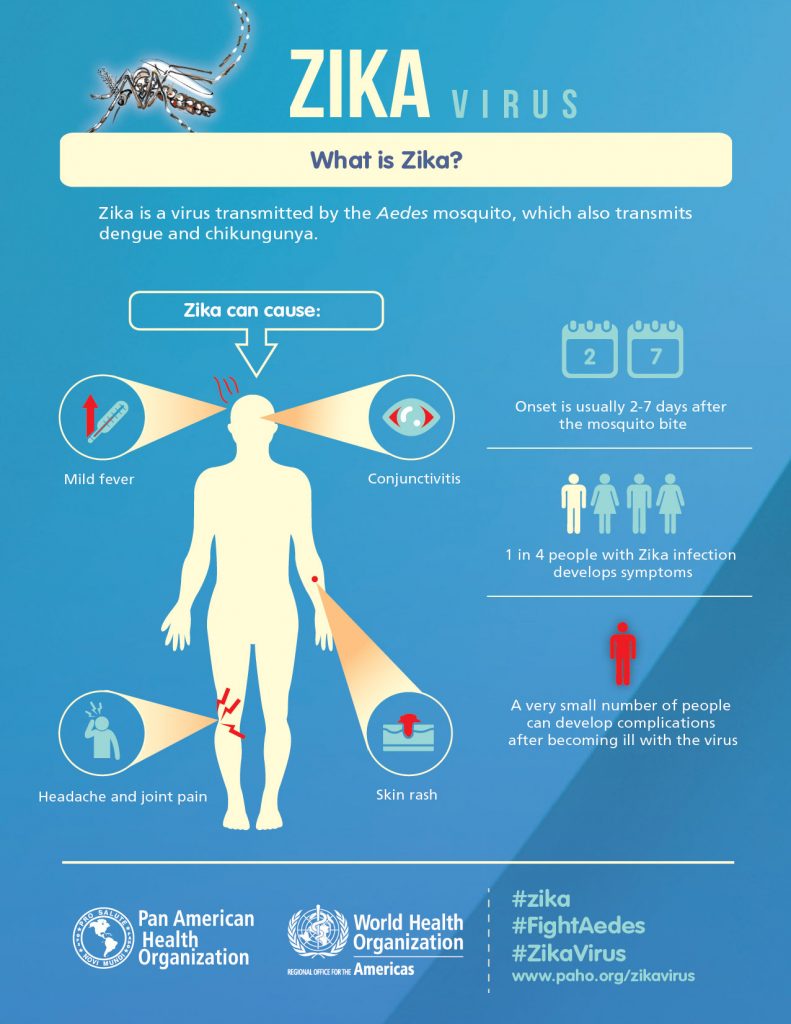Officials with the Florida Department of Health (DOH) are reporting three travel associated Zika virus cases in the state, according to a health alert issued moments ago.

The cases, two in Miami-Dade County and one in Hillsborough County, are linked to travel to South America, Colombia and Venezuela, respectively.
To date, 18 countries and territories in Latin America and the Caribbean have confirmed local transmission of the mosquito borne virus to include Barbados, Brazil, Colombia, Ecuador, El Salvador, French Guiana, Guatemala, Guyana, Haiti, Honduras, Martinique, Mexico, Panama, Paraguay, Puerto Rico, Saint Martin, Suriname, and Venezuela since 2015.
Last week, the Centers for Disease Control and Prevention (CDC) issued travel guidance for people traveling to regions and certain countries where Zika virus transmission is ongoing, with particular emphasis on special precautions for pregnant women and women trying to become pregnant due to reports in Brazil of microcephaly and other poor pregnancy outcomes in babies of mothers who were infected with Zika virus while pregnant.
This is not the first such cases in the United States. The first travel-associated Zika virus disease case among U.S. travelers was reported in 2007. From 2007 to 2014, a total of 14 returning U.S. travelers had positive Zika virus testing performed at CDC. In 2015 and 2016 at least eight U.S. travelers have had positive Zika virus testing performed at CDC.
The Florida DOH again encourages residents and visitors to protect themselves from all mosquito-borne illnesses by draining standing water; covering their skin with repellent and clothing; covering windows with screens; and other basic precautions included in “drain and cover:”
DRAIN standing water to stop mosquitoes from multiplying
- Drain water from garbage cans, house gutters, buckets, pool covers, coolers, toys, flower pots or any other containers where sprinkler or rain water has collected.
- Discard old tires, drums, bottles, cans, pots and pans, broken appliances and other items that aren’t being used.
- Empty and clean birdbaths and pet’s water bowls at least once or twice a week.
- Protect boats and vehicles from rain with tarps that don’t accumulate water.
- Maintain swimming pools in good condition and appropriately chlorinated. Empty plastic swimming pools when not in use.
COVER skin with clothing or repellent
- Clothing: Wear shoes, socks, and long pants and long-sleeves. This type of protection may be necessary for people who must work in areas where mosquitoes are present.
- Repellant: Apply mosquito repellent to bare skin and clothing. Always use repellents according to the label. Repellents with DEET, picaridin, oil of lemon eucalyptus, and IR3535 are effective. Use mosquito netting to protect children younger than 2 months old.
COVER doors and windows with screens to keep mosquitoes out of your house
- Repair broken screening on windows, doors, porches, and patios.
Related:


3 thoughts on “Florida reports three imported Zika virus cases”